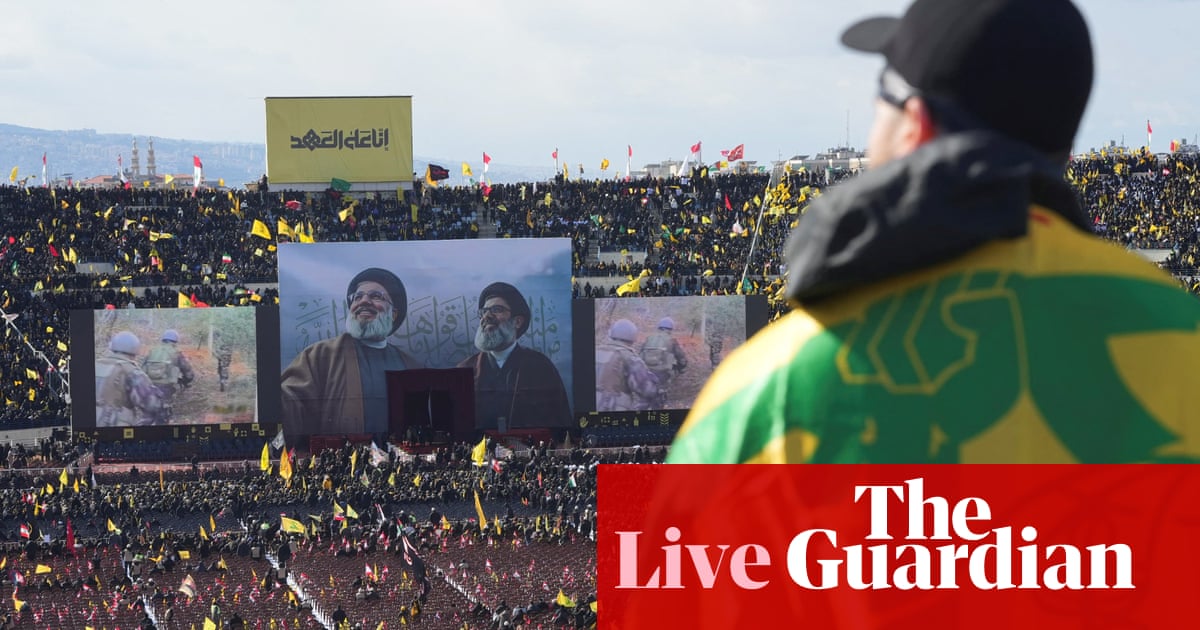Massive Turnout at Hassan Nasrallah's Funeral in Beirut Amid Tensions
Tens of thousands attended Hassan Nasrallah's delayed funeral, emphasizing his influence as tensions rise with Israeli airstrikes occurring nearby.
Overview
Hassan Nasrallah's public funeral in Beirut drew tens of thousands on Sunday, five months after his assassination by an Israeli airstrike. The event, Lebanon's largest in two decades, came after his funeral was delayed for security reasons. Iranian officials and global dignitaries attended, emphasizing his significance in the Iran-led resistance. Nasrallah's burial follows that of his successor, Hashem Safieddine. Tight security was enforced post-recent Israeli strikes near the border, highlighting ongoing regional tensions. The event symbolizes Hezbollah's resilience despite recent military setbacks and a fragile ceasefire following months of conflict with Israel.
Content generated by AI—learn more or report issue.

Get both sides in 5 minutes with our daily newsletter.
Analysis
Analysis unavailable for this viewpoint.
Articles (6)
Center (2)
FAQ
The funeral was delayed for security reasons, as it was initially held in secret locations before the official ceremony could be arranged safely.
The funeral was attended by tens of thousands of people, including officials from around the region such as Iran's parliament speaker Mohammad Bagher Qalibaf and Foreign Minister Abbas Araghchi, as well as Lebanese officials.
Hassan Nasrallah's death is part of a series of significant blows to Hezbollah, including the loss of other senior officials and a ceasefire agreement that restricts their armed presence along the Israeli border.
The large turnout at the funeral reflects Hezbollah's resilience and ongoing influence despite recent military setbacks and regional tensions.
History
- 4M

 3 articles
3 articles




